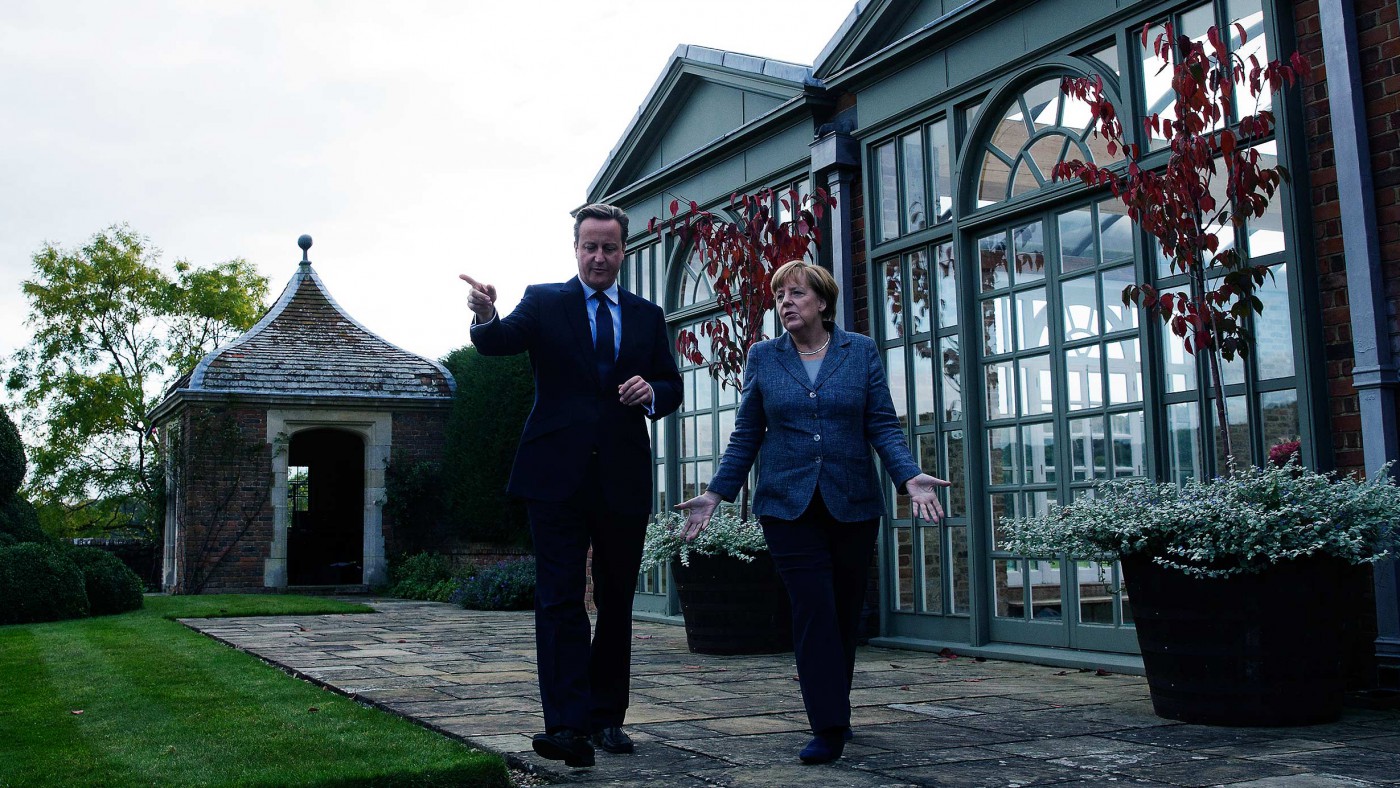David Cameron’s renegotiation with Europe – which is expected to absorb much, if not all, of the Government’s attention over the coming year – is only just getting under way. But is it already beside the point?
The reason I ask this is that the whole referendum campaign has been wrenched into a new and unexpected pattern – not by any act of Cameron or George Osborne’s, but by something as simple as the Electoral Commission’s regulations.
Until a few months ago, the shape of the campaign seemed pretty clear. The “Remain” campaign would be assembled by the usual Europhile suspects – Peter Mandelson, Roland Rudd et al. On the other side would be Matthew Elliott and Dominic Cummings of Business for Britain, and their allies.
It wasn’t quite as simple as that, however. While Elliott and Cummings had impeccable Eurosceptic credentials (Cummings, for example, is a former boss of Business for Sterling), theirs wasn’t an explicitly Outer organisation. The idea was that Business for Britain, Conservatives for Britain and any other groups that emerged (Labour for Britain, Students for Britain, Window-Cleaners for Britain…) would wait until the shape of Cameron’s deal was clear before rejecting it.
Partly, this was due to a (slim) hope that the Prime Minister might actually seek, and win, enough concessions to genuinely transform Britain’s relationship with Europe. But mostly, it was to seem like considered, rational, mainstream people – sensible types who wanted what was best for Britain, rather than scary, frothing-at-the-mouth Europhobes.
Enter Arron Banks. This millionaire businessman and UKIP donor didn’t think much of Elliott’s namby-pamby approach. So he set up his own group – “The Know”, subsequently renamed “Leave.EU” ( – and started recruiting all the scary, frothing-at-the-mouth Europhobes he could find. He also secured the backing of UKIP, which has declared his the anti-EU movement of choice .
This presented the moderate anti-Europeans with a big problem. Under the referendum rules, the Electoral Commission is responsible for selecting a “designated lead campaigner” on each side. This group is “entitled to a number of additional benefits over other registered campaigners that may include an increased spending limit, campaign broadcasts, a publicly funded grant, free mailing, and access to meeting rooms”.
In other words, only one group gets public money and TV broadcasts – and if Leave.EU was actively campaigning to leave, and Business for Britain was still theoretically on the fence, how could the latter claim that the former shouldn’t get the money?
Rather than leaving Nigel Farage as the public face of the Leave campaign, Elliott, Cummings and co came off the fence. They helped set up a new umbrella group, Vote Leave, with backing from across the political spectrum: it is odds-on to get the Electoral Commission’s seal of approval.
But this leaves us in a truly bizarre position. The Remain and Leave campaigns are both ramping up: soliciting donations, recruiting staff, seeking the support of big hitters (Boris Johnson is particularly prized), trying to set the terms of debate. But the Prime Minister’s cherished renegotiation has barely started – or if it has, it’s in such an embryonic state that even Angela Merkel doesn’t actually know what we want.
As Iain Martin wrote on CapX on Friday, “the moderate Eurosceptic position of waiting for the outcome of the renegotiation has been rendered obsolete”. And that’s bizarre, because waiting for the renegotation isn’t just the Government’s position – it’s the position of much of the public. This YouGov poll from December 2013 shows support for “Leave, No Matter What” and “Stay, No Matter What” topping out at 23 and 32 per cent respectively. There’s a group that’s just as big, if not bigger, that wants to see what’s actually on offer – in particular, whether Britain will be able to impose controls on immigration. That was also the issue singled out by Boris Johnson and Theresa May in their respective party conference speeches (although that was pretty much the only thing they had in common).
In other words, thanks to the Electoral Commission’s rules, and the actions of Arron Banks, David Cameron’s EU renegotiation process has been rendered – if not an irrelevance, then almost a sideshow. Rather than being assessed on their own merits, each of the concessions he secures will be cheered by one side and howled down by the other without any regard to their actual merit.
And there’s a further twist. The logic of the situation is that if Cameron doesn’t get (or ask for) much, it increases the chances of a Leave vote. If he gets a good deal, it stacks the deck in favour of Remain. Which raises the delicious prospect of lifelong Europhiles like Lord Mandelson or Ken Clarke urging Cameron to stand tough, while the loudest cheers for Merkel and Juncker come from those who’d like nothing more than to see the back of them forever.


